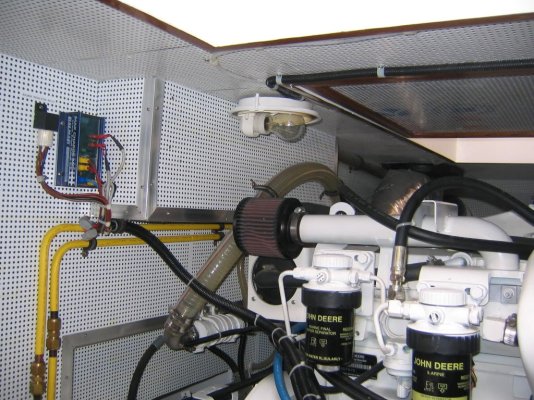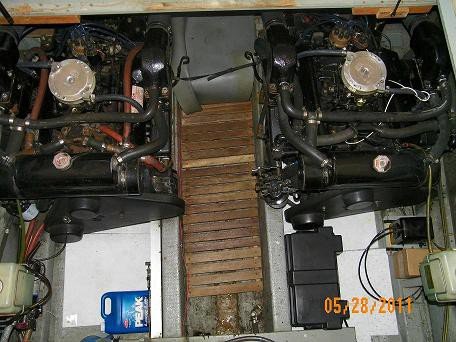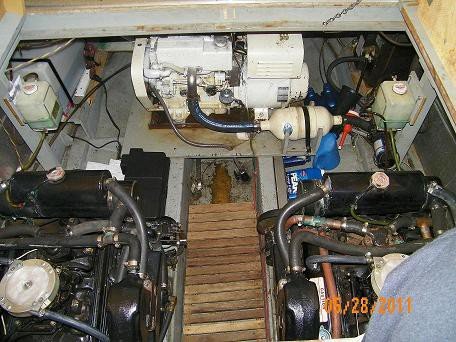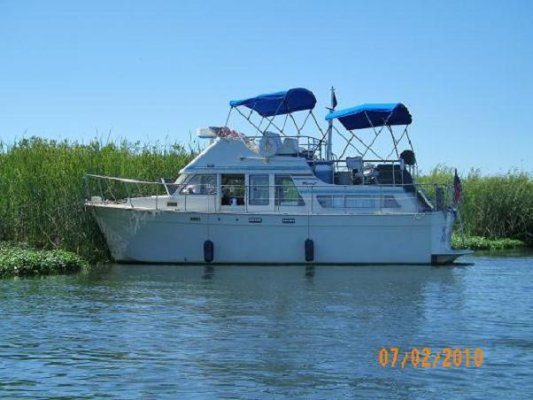Tony B wrote:
The other alternative is a motoryacht. Most motoryachts have gas engines. I feel safe on them when I know they*have been well maintained.
*How are you defining "motoryacht?"* To me, a motoryacht is a tri-cabin cruiser (trawler if you must but I don't use that term for our boats) with a full-width aft cabin.* Another term for it is "sundeck."* But Grand Banks calls them "motoryachts" so that's the image the term conjurs up in my mind when I hear it.
So to me, most motoryachts are diesel powered.
As to gas vs diesel, I think it's more to do with the type of boat than the type of engine.* For many years I fished on a gas powered boat in Hawaii (Uniflite sportfisherman, twin Chrysler V-8s and Vee-drives).* Never had any problems or concerns.
For a heavy, slow, economical cruiser like the kind we own now, diesels make a lot more sense.* Relatively low revving, lots of torque, very low fuel use.
Diesel engines because of their heavy construction will supposedly go longer between overhauls but how important that is will be dependent on how many hours you intend to put on the boat.* If you run it a lot and put hundreds or thousands of hours on a boat in a year, diesel probably makes more sense.* If you operate the boat the typical 100-150 hours a year, it will take some twenty or more years to put just 3,000 hours on the engines.* So the theoretically shorter life of a gas engine may not matter at all to you assuming it's suited to the boat and the type of boating you want to do.
Diesels have some safety advantages in that a weepy fuel line or leaking fuel filter won't fill the bilge with easily-ignited fumes.* So you can "get away" with more with a diesel engine.* A diesel engine has fewer systems, the primary advantage being there is no ignition system.* But diesels have their downsides.* They can be hard to start in cold weather.* Service and repairs are generally more expensive although the theory is you don't need to mess with a diesel as much as a gas engine.
So if you factor in all the advantages and disadvantages it's kind of six of one, half dozen of the other.* I would choose one over the other based on what is being powered and how I'm going to use it rather than make a boat-buying decsion solely on a bunch of theoretical safety issues.* A boat's propulsion system is going to be as safe or as dangerous as you make it by your own operation, service, and maintenance practices.
-- Edited by Marin on Wednesday 22nd of February 2012 01:43:28 PM



